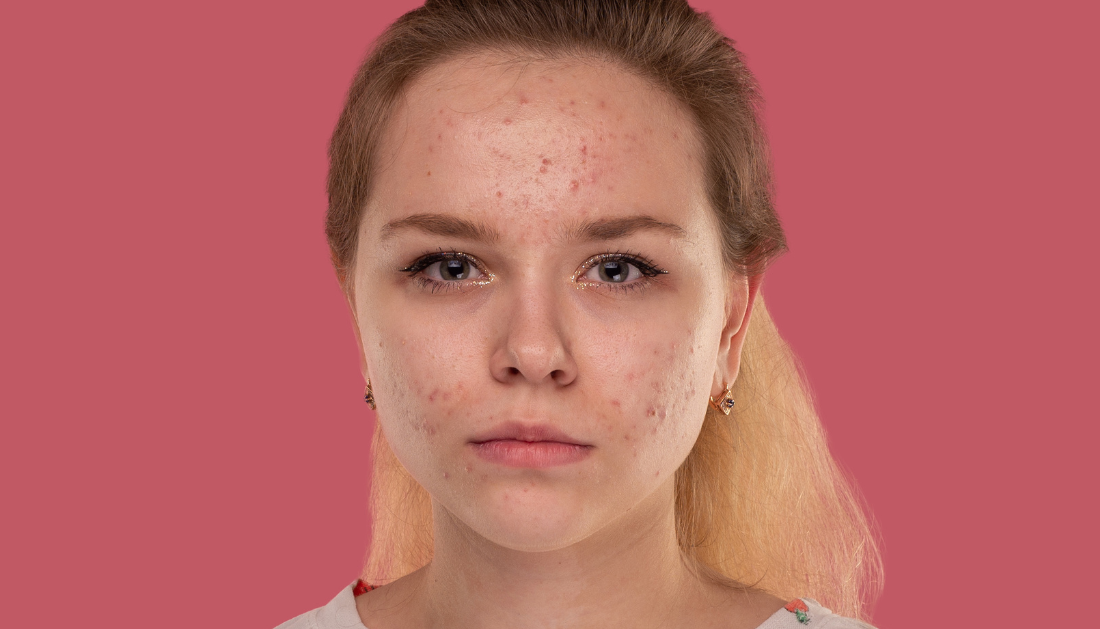

A recent study published in the Nutrients journal examines the potential impact of dietary antioxidants on the quality of life (QoL) of young women suffering from acne vulgaris (AV).
Why does AV occur?
Adolescence is the primary time that AV, a chronic skin disease, develops; but, in certain situations, AV can also continue into adulthood. Around 9% of people on the planet suffer from AV.
AV is characterized by several physical characteristics such as nodules, scars, pustules, and papules. Acne usually affects the face and harms one’s general quality of life and mental health. For this reason, treating acne holistically is essential to reducing its negative impact on the body and mind.
Age, a sedentary lifestyle, gender, and food are among the variables that have been linked in previous research to the pathophysiology of acne.
It has also been demonstrated that inflammatory, hormonal, genetic, and environmental variables have a role in AV.
Acne lesions have been demonstrated to decrease with regular use of a vegetarian diet, a Mediterranean diet, prebiotics, dietary probiotics, fiber, polyunsaturated fatty acids, and low-glycemic foods. On the other hand, highly processed diets that contain a lot of sugar, milk, and saturated fats may make acne lesions worse. Thus, eating behaviors in youth may be associated with AV; further investigation is necessary to clarify the part that diet plays in AV expression.
The pathophysiology of AV is significantly influenced by oxidative stress. Reactive oxygen species (ROS) are necessary for healthy immune system operation in tiny amounts, but excessive ROS generation has been connected to cell damage that may result in skin diseases. Oxidative stress can be reduced by dietary antioxidants, including vitamins, minerals, and polyphenols.
Concerning the study
The current study assessed the correlation between young women with AV’s quality of life (QoL) and the dietary antioxidant quality index (DAQI). The trial comprised 165 young women with AV who were between the ages of 18 and 35. Every participant followed a 500–5000 kcal daily diet.
All study participants had baseline data collected on their lifestyle, acne, and sociodemographic characteristics. We also collected the participants’ height, education, marital status, body weight, smoking, and alcohol intake. The International Physical Activity Questionnaire (IPAQ) was used to assess the intensity of physical activity at each level, from low to high.
A randomized three-day food diary, consisting of two weekdays and one weekend day, was used to measure dietary intake. Details on food consumption were noted on the chosen days. Calculations were made to determine the amounts of calories, vitamins, minerals, antioxidants, and other dietary components.
Dietary vitamin C, vitamin E, β-carotene, copper, manganese, iron, zinc, selenium, dietary antioxidant capacity, phytosterols, lignans, and polyphenols were all evaluated using the DAQI scale. Antioxidant enzyme components, including glutathione peroxidase, catalase, and superoxide dismutase, were also assessed.
Study results
The participants’ average age was 23.6 years. Of the group, 65% had a middle level of education and almost 88% were single.
Some members of the study cohort battled AV for more than five years, and over 50% of them did so for two to five years. Serious acne affected almost 9% of the group.
The Satisfaction with Life Scale (SWLS) test indicated that research participants were moderately satisfied with their lives, suggesting that AV had a moderate effect on their quality of life. According to the results of the Beck Depression Inventory (BDI), almost 33% of the study participants showed symptoms of depression.
While a considerable proportion of research participants engaged in moderate physical activity, smoked cigarettes, drank alcohol once a week, and had an average BMI, many others engaged in low levels of physical activity. Notably, the dietary antioxidant levels of the majority of subjects were lower than advised.
The immune system, hormones, gut flora, and metabolism of carbohydrates and fats are among the ways that diet affects AV. Developing countries showed a lower frequency of AV than did industrialized countries with great adherence to the Western diet.
Because the majority of the study participants with higher DAQI were nonsmokers, had lower BMIs, and engaged in moderate physical exercise, they had healthier lifestyles. A higher DAQI enhanced QoL by 30–33% and reduced the risk of AV.
In conclusion
Following a diet high in antioxidants decreased the chance of AV, which decreased the study participants’ likelihood of developing depression. DAQI may be utilized in the future to help people with AV understand the quality of their food.
For more information: The Antioxidant Power of a Diet May Improve the Quality of Life of Young Women with Acne Vulgaris, Nutrients, doi:10.3390/nu16091270
more recommended stories
 Nanoplastics in Brain Tissue and Neurological Risk
Nanoplastics in Brain Tissue and Neurological RiskKey Takeaways for HCPs Nanoplastics are.
 AI Predicts Chronic GVHD Risk After Stem Cell Transplant
AI Predicts Chronic GVHD Risk After Stem Cell TransplantKey Takeaways A new AI-driven tool,.
 Red Meat Consumption Linked to Higher Diabetes Odds
Red Meat Consumption Linked to Higher Diabetes OddsKey Takeaways Higher intake of total,.
 Pediatric Crohn’s Disease Microbial Signature Identified
Pediatric Crohn’s Disease Microbial Signature IdentifiedKey Points at a Glance NYU.
 Nanovaccine Design Boosts Immune Attack on HPV Tumors
Nanovaccine Design Boosts Immune Attack on HPV TumorsKey Highlights Reconfiguring peptide orientation significantly.
 High-Fat Diets Cause Damage to Metabolic Health
High-Fat Diets Cause Damage to Metabolic HealthKey Points Takeaways High-fat and ketogenic.
 Acute Ischemic Stroke: New Evidence for Neuroprotection
Acute Ischemic Stroke: New Evidence for NeuroprotectionKey Highlights A Phase III clinical.
 Statins Rarely Cause Side Effects, Large Trials Show
Statins Rarely Cause Side Effects, Large Trials ShowKey Points at a Glance Large.
 Can Too Many Antioxidants Harm Future Offspring?
Can Too Many Antioxidants Harm Future Offspring?Key Takeaways High-dose antioxidant supplementation in.
 Anxiety Reduction and Emotional Support on Social Media
Anxiety Reduction and Emotional Support on Social MediaKey Summary Anxiety commonly begins in.

Leave a Comment